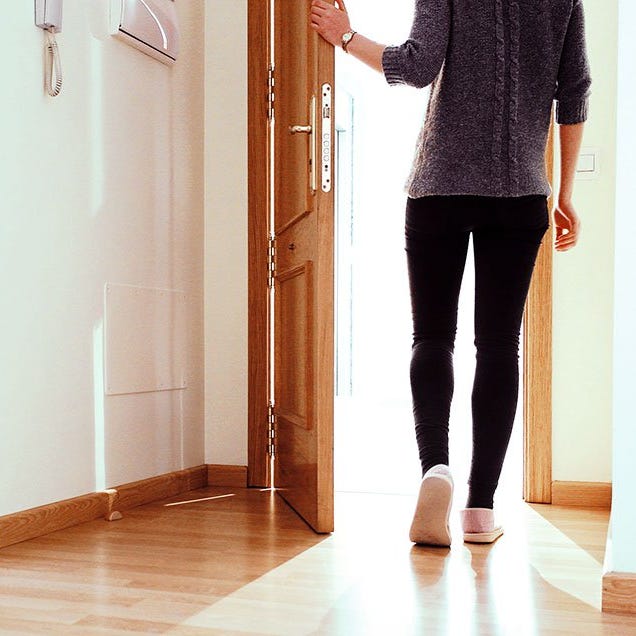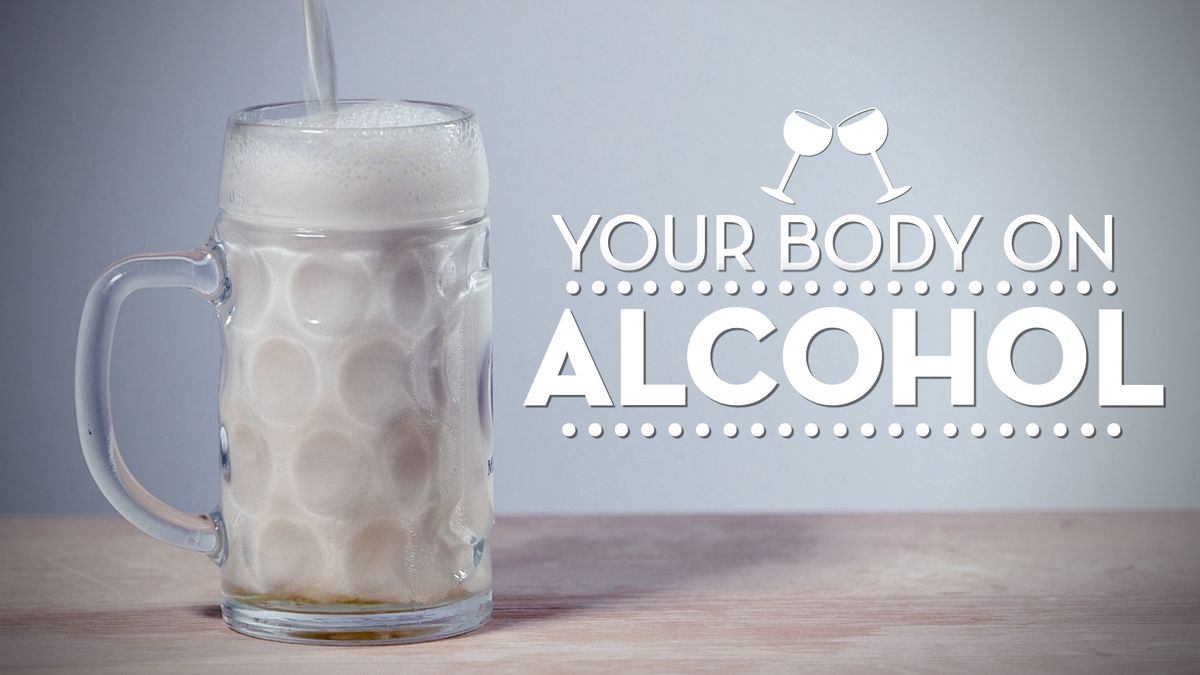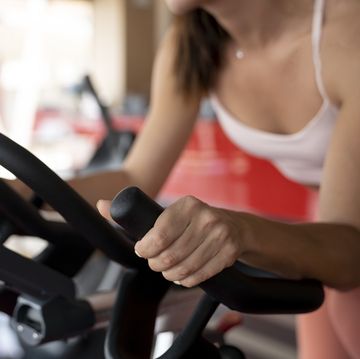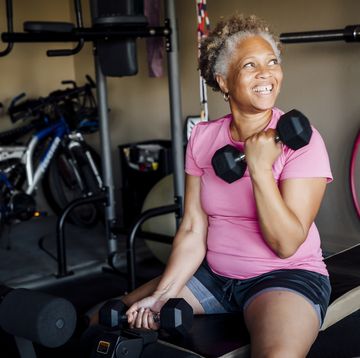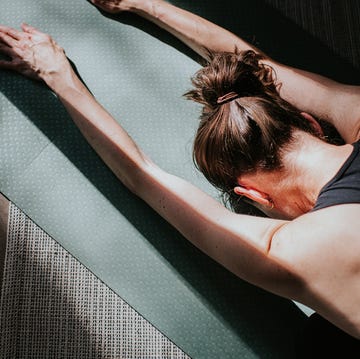I’ll admit it: I’m all about hitting the couch for some Netflix and a nightcap after dinner most nights.
I’m an active, 38-year-old who lives in Boulder, Colorado, where a typical day might include a morning hike, bike ride to work, afternoon walk for coffee with co-workers, and an Orange Theory workout instead of happy hour. (Yes, that all happens in one day on a fairly regular basis.) So by no means do I consider my post-dinner couch habit detrimental. A girl’s got to rest, after all. (Be on the look out for these cutting-edge products that can help you sleep better and stay healthy!)
Recently, however, I’d been feeling like my post-dinner couch-plop was getting in the way of my efforts to scale back on my evening glass (OK, glasses) of vino. Plus, I realized that I could be using that time to read, connect with friends, or maybe even meditate... but none of that was happening. So I decided to see if taking a brief walk after dinner each night might help shake up my routine and encourage me to make better use of the three-ish hours between dinner and bedtime. My goal: Commit to taking a 15-minute walk after dinner every night for 30 days. Here’s what happened.
(Customize your own walking plan with Walk Your Way to Better Health and lose up to 5x more belly fat!)
I started drinking less wine…
Within the first week of my self-imposed experiment, I was off to a solid start when it came to one of my big goals: drinking less wine. Leaving my house to take a walk right after dinner meant I had to finish my glass of vino before I got up from the table (rather than toting a half-full glass with me to the couch, where I’d undoubtedly be tempted to fill ’er up again at some point). And my walks, even though they were brief, left me thirsty—and craving a big glass of water when I got home.
This is your body on alcohol:
… and started eating more ice cream.
While I was immediately finding it easier to lay off the vino, one of my go-to post-dinner routes did take me past Boulder’s best ice cream shop. And many nights—especially in the first week of my month-long experiment—the lure of a scoop of chocolate peanut butter ice cream was too strong to resist. I wondered if my after-dinner walking experiment would simply inspire me to replace one bad diet habit with another. (Make a healthier ice cream in your blender at home with these recipes.)
I fell asleep—and woke up—less stressed.
As an editor and writer, I am always up against some kind of deadline and have a long list of to-dos when I crack open my laptop. And while sitting on the couch at night sipping a New Zealand Sauvignon Blanc tends to make all of that go away—at least for a few episodes of Veep or This Is Us—some stress about everything on my work plate tends to creep up when I turn off the TV and start brushing my teeth. That, in turn, often leads to a crowded mind and antsy feeling just as my body is begging me to slow the thoughts down and finally relax. (Here's how you can make stress work for you.)
My nighttime walks turned into a prime time to take stock of what I’d accomplished that day, what was on the docket for the next, and to mentally prioritize what had to get done. The result? I felt way fewer deadline jitters as I got into bed, leading to more restful sleep and calmer mornings.
MORE: 15 Stress Relief Gifts For Someone Who Really Needs To Chill
My digestion got a whole lot better.
I tend to keep it pretty healthy when it comes to dinner: spiralized veggies, cauliflower rice, fish, and lean meats are my staples. Yet oftentimes I don’t eat dinner until 8 or 9 PM, and sitting right after eating—even if the food is super-healthy—isn’t exactly ideal.
Research backs up the benefits of moving a little after eating: One 2008 study found that even 15 minutes of walking after finishing a meal can help with digestion and improve blood sugar levels, speeding the rate at which food moves through the stomach. After my first post-dinner walk, I could feel the truth to this. Rather than going to sleep with a grumbling belly and waking up having to go to the bathroom right away, my dinner was, well, moving through my body before bed, leaving me feeling less bloated and gassy as I drifted off. This happy-belly trend stayed strong over the course of the entire 30 days—an upside of my after-dinner strolls I didn’t even realize would wow me so much. (Psst! These 5 herbs and supplements will seriously improve your digestion.)
I started making better use of my pre-bedtime time.
Usually, when I’m camped out on the couch at night, I’m looking at a stack of New Yorker magazines I aspire to read, my meditation cushion I’d like to sit on more frequently, and a journal I’ve been meaning to start using. I’ll look at these things, remember my goals to tackle them one of these nights, and then feel a little guilty as I re-focus on whatever I’m watching on TV.
Just three days in to my evening walks and I found myself craving some time on that meditation cushion before turning on the TV. On night number five, I took a hot shower, got into bed two hours early, and read a few meaty articles in a New Yorker that had been sitting on my coffee table for three months. Two weeks in, I was effortlessly carving out some time to write in my journal every night and didn’t even feel the urge to turn on the tube.
MORE: The Heart-Healthy Reason To Take A Bath Tonight
Now, after a solid month of nightly post-dinner walks, I feel much more conscious about how I spend my evenings. Do I still watch TV sometimes? Sure. But I often find myself opting to do something just as relaxing—and a lot more productive—as vegging out on the couch.
